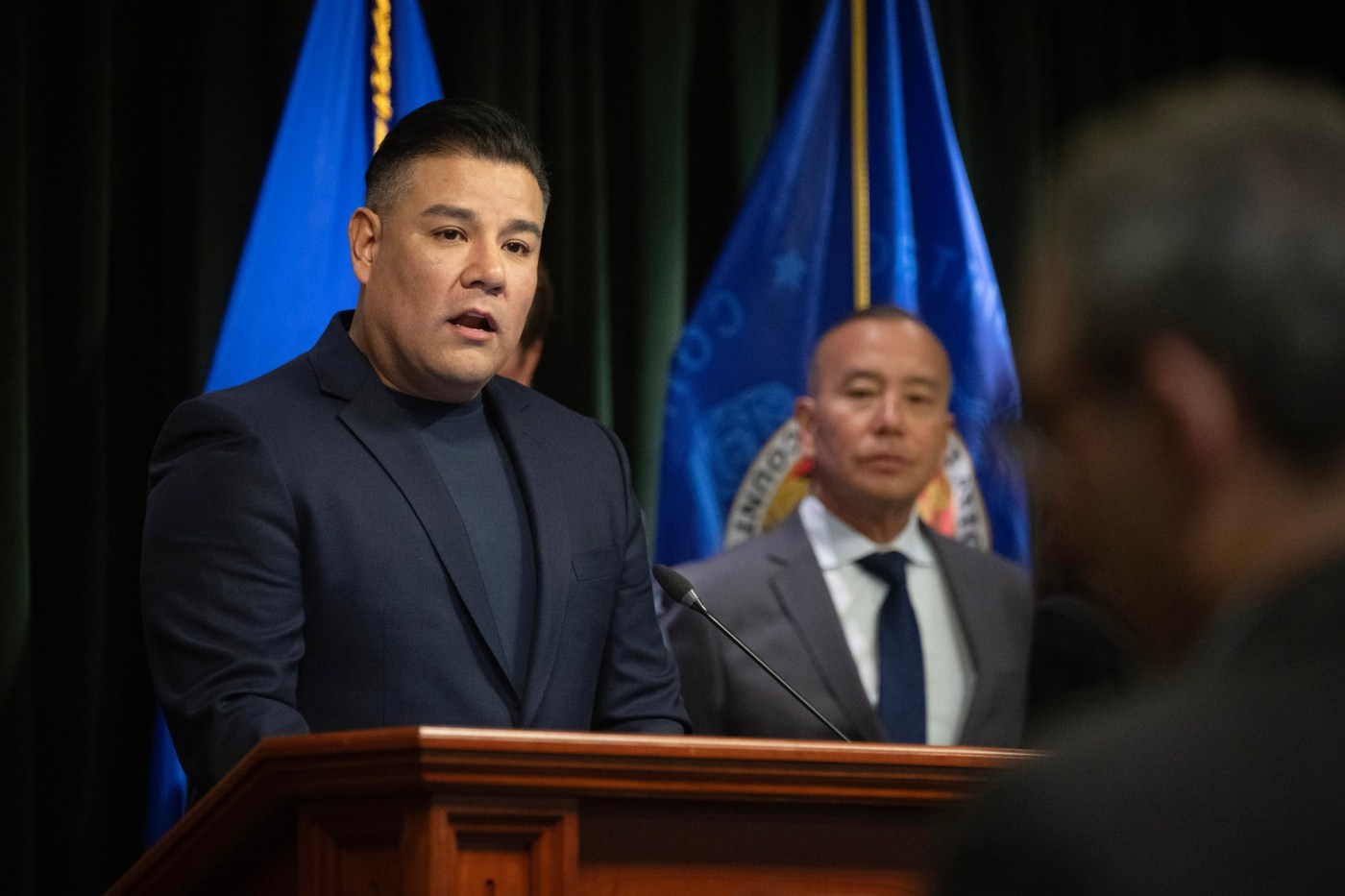
By Levi Sumagaysay, CalMatters
California Insurance Commissioner Ricardo Lara is proposing more new insurance rules that critics are calling “vindictive,” and which they say will only make it easier for insurers to raise rates.
Home insurance costs in California are likely to rise in the near future because of Lara’s recent changes to the state’s insurance rules. Those changes are meant to encourage insurance companies to keep writing new policies and discourage them from canceling policies, especially in areas of high wildfire risk.
Related Articles
Walters: California’s insurance commissioner targets Consumer Watchdog fees
Kaiser Permanente Northern California earns top state, national ratings
Major California health insurers side with Newsom and medical groups to cover COVID shots
Without insurance, immigrant patients may face unregulated ‘medical deportation’
California’s FAIR Plan would face more scrutiny under bill heading to Newsom’s desk
Last week, Lara proposed altering the insurance rate-review process in what he said is an effort to make it more efficient. But others say the changes Lara wants to make amount to retaliation against one of his biggest and toughest critics, Consumer Watchdog.
“This is Trumpian,” said Jamie Court, president of Consumer Watchdog, the nonprofit organization that wrote the state’s Proposition 103 insurance law. Consumer Watchdog is California’s most prolific intervenor; an intervenor is a member of the public who can challenge an insurer’s rate request.
The organization has repeatedly questioned Lara’s ties to the insurance industry, from which he has received and returned campaign contributions. Consumer Watchdog has sued the insurance department over several different issues, including its rule allowing the FAIR Plan — the fire insurance provider of last resort — to recoup some of its claims payouts from policyholders in the state.
Lara’s proposed changes would do the following:
Impose new timelines and guidelines for intervenors and administrative law judges.
Tighten requirements for what’s considered a “substantial contribution” for intervenors to get compensated for their work.
Limit administrative law judges’ authority in rate reviews.
Consumer Watchdog and other consumer advocacy organizations say those changes would make it harder for intervenors — who need to pay experts to challenge the rate requests — to be compensated. That could result in fewer intervenors, not more, as Lara’s proposal intends. They also say the changes could lead to unjustified premium increases more quickly.
Lara’s term expires next year and “he’s exacting his revenge,” Court told CalMatters, adding that his group is considering suing over the matter.
Michael Soller, a spokesperson for the insurance department, would not respond to Court’s comments but said Consumer Watchdog “will have a chance to say what they have to say” during the public comment period on Lara’s proposal, which starts Oct. 3. A hearing on the proposal is scheduled for Nov. 20.
An insurance industry representative, the American Property Casualty Insurance Association, supports Lara’s proposal to fix the “broken intervenor process.”
“The only one of its kind in the nation, this process has contributed to the insurance crisis by delaying rate approvals, duplicating the (insurance department’s) work, and ultimately driving up costs for consumers,” said Denni Ritter, the association’s vice president for state government relations, in a statement.
Both Lara and the insurance industry have questioned Consumer Watchdog’s commitment to consumers over the years, and have accused the group of using the insurance law it wrote to enrich its leaders.
But Consumer Watchdog says it has saved Californians more than $6 billion in home and auto insurance premiums from 2002 to 2024. Under the intervenor system, the group says it has received $14.2 million in compensation over that period, or 25 cents for every $100 saved. Court said that compensation goes toward paying attorneys and actuaries — experts who try to hold their own against the powerful insurance industry.
California, whose housing costs are the highest in the nation, is about in the middle when it comes to average annual homeowners’ insurance rates, according to analyses by Realtor.com and comparison website Bankrate.com. Like many other states around the country, though, it is dealing with climate change-related risks that have raised concerns about an uninsurable future.
Robert Herrell is executive director of Consumer Federation of California, a nonprofit consumer advocacy group that mostly focuses on legislative work but which has also intervened in rate reviews. He said he doesn’t agree with Consumer Watchdog on everything, but that intervenors’ work in the state has been important in keeping insurance premiums from rising too much.
“There’s no doubt in my mind that the work Consumer Watchdog has done has saved consumers money,” said Herrell, who was deputy insurance commissioner under former Commissioner Dave Jones.
Both groups sued Lara in July, alleging he denied them compensation for their participation in the department’s rulemaking last year.
Herrell said stricter requirements for intervenors will only serve to discourage them from challenging rate requests and lead to higher insurance premiums, and that Lara’s proposal “feels punitive” against Consumer Watchdog.
“We (intervenors) may be collateral damage, but real people are going to get hurt,” he added.
Soller, the insurance department spokesperson, disagrees. He said the commissioner’s proposal actually seeks to increase transparency and the number of intervenors, and addresses a key problem: availability of insurance.
Insurance companies that have pulled back on writing new policies in California have complained, among other things, that the department takes too long to approve their rate requests.
“What consumers aren’t getting is availability and the coverage they need,” Soller said.
Consumer Watchdog is pushing back on the accusation that it’s to blame for delays in rate approvals. “The time until rates were approved in cases with intervenors and without intervenors’ public participation is nearly identical,” the group said in a statement.
This article was originally published on CalMatters and was republished under the Creative Commons Attribution-NonCommercial-NoDerivatives license.